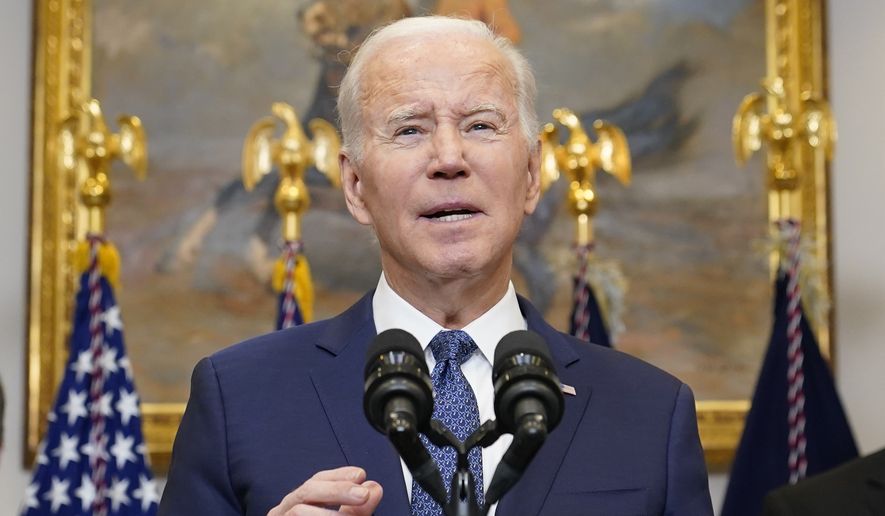OPINION:
In his State of the Union Address, President Joe Biden said, “We’re taking on powerful interests to bring your health care costs down so you can sleep better at night.” Unfortunately for the president, however, actions speak louder than words. Thirsty for more profits, Big Pharma and its allies appear to be pushing his administration to neutralize the pro-consumer organizations that restrain drug pricing. Sadly, the White House appears to have bought into their agenda.
In what can only be hailed as a victory for the country’s major drug companies, the administration’s Federal Trade Commission is going after pharmacy benefit managers (PBMs), the companies on the opposing side of the negotiating table to the drug companies. So is Sen. Maria Cantwell (D-A), who recently re-introduced legislation to regulate them into oblivion. They argue that the PBMs have gotten too massive, that their terms are unfair, and that they warrant anti-trust scrutiny.
If you’re having a hard time believing that the converse to drug companies — the ones that manage Americans’ health plans — are to blame for the high costs of drugs, you’re not alone. So are some in the Department of Health and Human Services, whose Inspector General found that the rebates PBMs secured “substantially reduced the percentage increase in reimbursement for brand-name drugs in Part D from 2011 to 2015.” Ditto for others in the Government Accountability Office, which found that PBMs’ rebates “grew faster than total Part D expenditures from 2014 through 2016.”
There is nothing anti-free market about PBMs. Insurers and others are under no obligation to use them, but they do because the PBMs have saved them and their beneficiaries countless dollars over the years. Why, then, are some in Washington pointing the finger at PBMs?
Perhaps it’s because Big Pharma — the real problem monopoly here — needs to project its sins onto someone else.
It’s now common knowledge that with the one notable exception of Obamacare and overregulation, drug companies (which maintain a 76.5 percent median gross profit) are the principal drivers of the high costs of drugs in America. The worst are the nation’s three biggest pharmaceutical wholesalers, which distribute 90 percent of America’s drugs.
These three wholesalers own the biggest pharmacy service administrative organizations (PSAO) on the market — the groups that are supposed to represent pharmacies’ interests in drug price negotiations. However, now that the big three drug distributors own the biggest PSAOs, they seem to represent Big Pharma’s interests instead.
Together, the PSAOs appear to collude with the National Community Pharmacists Association (NCPA) — which benefits significantly from the big three drug distributors’ donations — to keep drug costs high. They purport to be the voice of the people, but they’re not. They’re seemingly bought and paid for by Big Pharma, and everyone paying attention knows it.
Despite the president’s rhetorical flourishes attacking the pharmaceutical industry, it seems that almost every policy position emanating from the White House will benefit none other than Big Pharma itself.
We have witnessed the Biden administration push policies demanding citizens use pharma’s products or else lose their jobs. At the same time, it has given the largest companies in the world immunity from lawsuits if their employees become injured from federal vaccine mandates. And now, we are witnessing the White House attack the one institution that tries to bring costs down for consumers.
It’s time for President Biden’s rhetoric to start matching his policy decisions. If he is serious about taking on “taking on powerful interests to bring your health care costs down,” he would set his sights on Big Pharma and its army of lobbyists rather than groups pressuring it to keep prices competitive.
It’s never too late to do what’s right.
- Glassner was the 2016 Deputy Campaign Manager for President Trump and his 2020 Chief Operating Officer




Please read our comment policy before commenting.